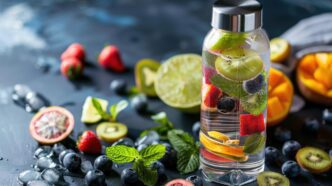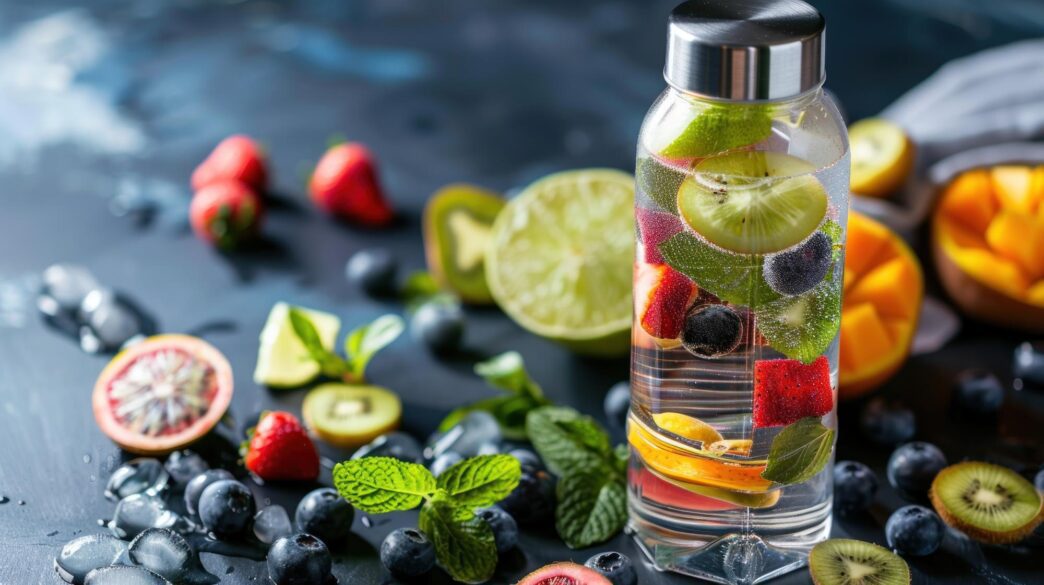A Quick Takeaway
The Story Behind the Trend
How to Make It Work for You
The Community View
Achieving peak performance, whether in your daily life, at the gym, or on the field, hinges significantly on optimal hydration – a critical component that extends far beyond simply drinking water. This guide will reveal why strategic hydration, incorporating essential electrolytes and diverse fluid sources, is vital for everyone from athletes to busy professionals, ensuring your body and mind function at their highest capacity throughout the day.
The Foundation: Why Hydration Matters for Peak Performance
Water constitutes a significant portion of our body weight and is indispensable for virtually every bodily function. It acts as a solvent, transporting nutrients to cells and carrying waste products away.
Proper hydration is crucial for maintaining body temperature through sweating, lubricating joints, and protecting organs and tissues. Even mild dehydration can significantly impair physical performance, cognitive function, and mood.
When you’re well-hydrated, your blood volume remains optimal, allowing efficient oxygen and nutrient delivery to working muscles. This directly translates to improved endurance, strength, and reduced fatigue during any activity.
Beyond the Glass: Understanding Electrolytes
While water is the cornerstone, electrolytes are the unsung heroes of true hydration, especially when pursuing peak performance. These essential minerals carry an electric charge and are vital for numerous bodily processes, including nerve impulses, muscle contraction, and maintaining proper fluid balance.
Electrolytes are lost through sweat, and replenishing them is crucial to prevent imbalances that can lead to muscle cramps, fatigue, and impaired performance. Understanding the role of key electrolytes helps you make informed choices about your hydration strategy.
Sodium: More Than Just Salt
Sodium is critical for maintaining fluid balance outside your cells and for proper nerve and muscle function. During intense or prolonged exercise, especially in hot conditions, significant amounts of sodium can be lost through sweat.
Replenishing sodium helps prevent hyponatremia (low blood sodium), which can be dangerous. Sources include electrolyte drinks, certain foods, and even a pinch of salt added to water or meals.
Potassium: The Heart’s Ally
Potassium works in tandem with sodium to maintain fluid balance, but primarily inside your cells. It’s essential for heart function, muscle contractions, and nerve signals.
Low potassium levels can lead to muscle weakness and fatigue. Excellent dietary sources include bananas, oranges, avocados, spinach, and potatoes.
Magnesium: The Unsung Hero
Magnesium participates in over 300 biochemical reactions in the body, including muscle and nerve function, blood glucose control, and blood pressure regulation. It’s also vital for energy production and bone health.
Many people are deficient in magnesium, which can contribute to muscle cramps and reduced athletic performance. Rich sources include leafy green vegetables, nuts, seeds, whole grains, and legumes.
Strategic Hydration: When and What to Drink
Optimizing your hydration involves more than just reacting to thirst; it requires a proactive and strategic approach throughout your day.
Daily Maintenance
Consistent daily hydration is the baseline for all other performance goals. Aim to drink fluids regularly throughout the day, even when not feeling overtly thirsty.
A good indicator of adequate hydration is the color of your urine; it should be light yellow or straw-colored. Keep a water bottle handy as a constant reminder.
Pre-Workout/Activity
Begin your activity well-hydrated by drinking 16-20 ounces of water or an electrolyte beverage 2-3 hours before exercise. Follow up with another 8-10 ounces 20-30 minutes before starting.
For longer or more intense sessions, a drink containing electrolytes can prime your body for optimal performance.
During Activity
During exercise, sip fluids regularly to replace what you’re losing through sweat. For activities lasting less than 60 minutes, water is generally sufficient.
For workouts exceeding an hour, or in hot and humid conditions, an electrolyte-rich sports drink is beneficial to replenish lost sodium, potassium, and carbohydrates for energy.
Post-Workout/Recovery
After your workout, focus on replenishing both fluids and electrolytes to aid recovery and kickstart muscle repair. Aim to consume 16-24 ounces of fluid for every pound of body weight lost during exercise.
Combining water with electrolyte-rich foods or beverages helps restore balance and supports your body’s healing processes.
Smart Sips: Hydration Sources Beyond Plain Water
While plain water is always essential, diversifying your fluid intake can provide additional benefits and make hydration more enjoyable.
Electrolyte-Enhanced Waters & Drinks
These beverages are formulated to provide essential minerals lost through sweat. Choose options with lower sugar content if you’re not engaging in prolonged, high-intensity activity.
Look for balanced profiles of sodium, potassium, and magnesium to support comprehensive replenishment.
Coconut Water
Often touted as nature’s sports drink, coconut water is naturally rich in potassium and contains smaller amounts of sodium, calcium, and magnesium. It’s a great option for moderate rehydration.
Be mindful of added sugars in flavored varieties, opting for pure, unsweetened coconut water whenever possible.
Fruit & Vegetable Juices (Diluted)
Diluted fruit and vegetable juices can provide some electrolytes, vitamins, and a touch of natural sugar for energy. Diluting them helps reduce sugar concentration and makes them more palatable for hydration.
Consider blending your own fresh juices to control ingredients and maximize nutrient content.
Oral Rehydration Solutions (ORS)
For extreme dehydration, illness, or very heavy sweat loss, medically formulated Oral Rehydration Solutions provide a precise balance of electrolytes and glucose. These are designed for rapid absorption and effective rehydration.
They are particularly useful in situations where typical sports drinks may not be sufficient.
Hydrating Foods
Don’t underestimate the power of food in your hydration strategy. Many fruits and vegetables have high water content and provide natural electrolytes.
Watermelon, cucumbers, oranges, berries, celery, and bell peppers are excellent choices to snack on throughout the day to boost your fluid and mineral intake.
Personalizing Your Hydration Strategy
Optimal hydration is not a one-size-fits-all approach; it depends on individual factors like activity level, climate, body size, and overall health. Pay attention to your body’s signals, such as thirst and urine color, and adjust your intake accordingly.
Experiment with different hydration sources to find what works best for your taste and digestive system. If you have specific health conditions or are training for extreme events, consulting a healthcare professional or a registered dietitian can help tailor a precise hydration plan.







